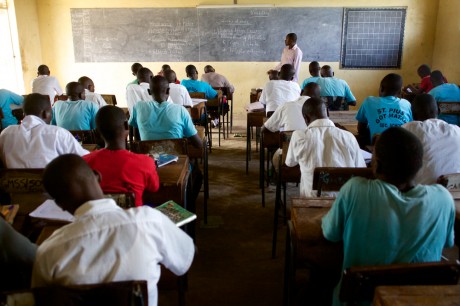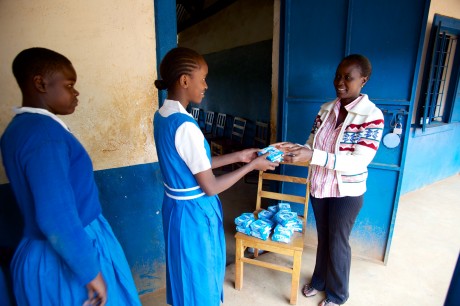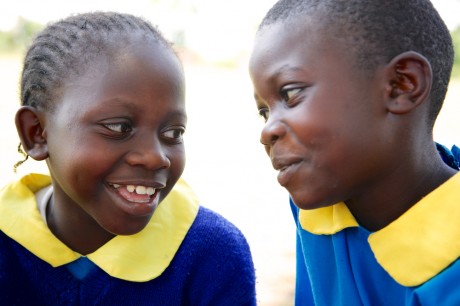
Development experts once predicted that abolishing education fees would allow millions of children from poor families to attend school around the world. Unfortunately this prediction has been proven wrong and despite the implementation of Free Primary Education (FPE) in many countries about 1 million children are still out of school. As Ace Africa has found, children in rural Kenya experience various barriers to education which are unrelated to the cost of school fees.
‘Being the wrong gender’ for example, can be seen as a central barrier to education. Indeed, studies suggest that girls miss up to 70 days of school a year due to menstruation, a problem which their male counterparts will not experience. Many are convinced that menstruation is shameful, do not have sanitary supplies and will therefore stay home during their period.
Hunger and poor nutrition is another barrier against education in rural Kenya which is gravely underreported. Poor nutrition can affect a child’s cognitive abilities as well as their focus and concentration in school. Good nutrition conversely is crucial preparation for good learning. In addition, there are a number of indirect costs of education such as the cost of school uniform, books and pens and learning materials which prevent many students from attending school. Although education is theoretically free in practice parents or students are forced to pay for ‘compulsory items’ such as uniforms or else forfeit the education.
With the support of Angus Lawson Memorial Trust and Mac Bevan Charitable Trust, Ace Africa is dismantling these barriers to education in rural Kenya. The partnership between Ace Africa, ALMT and MacBevan began in 2013 and over this period has successfully enhanced the educational access of 3,000 children through the provision of school uniforms, sanitary towels, counselling and other support at 35 schools in rural Kenya.

Since December 2014, when this new grant was initiated, 2,000 girls have been supplied with re-usable sanitary towels and 250 orphaned and vulnerable children have been provided with school uniforms. In a new collaboration Ace Africa has commissioned 39 students enrolled on the tailoring course at the Institute of Technology in Got Matar to make these uniforms. This has improved the livelihoods of these 39 households. Ace Child-to-Child clubs have also provided counselling for vulnerable students and helped to enhance confidence, attendance and student’s transition to the next level of school. The clubs empower students to work together and establish initiatives such as the keeping of local poultry, rabbits and gardening. The profit made from these child friendly enterprises has enabled students to purchase extra school essentials like books and pens. In addition, community forums organised by Ace Africa have helped sensitise parents and guardians about the issues students face.
Overall there have been marked improvements in school participation over the year long project period. The average number of school days missed by girls, for example, has diminished from 70 to less than 10 days. With the full support of parents and teachers, students have become more determined, confident and most importantly, happy to be learning at school.

‘Since the provision of sanitary towels and panties to our young girls we have seen remarkable change in their lives. They enjoy coming to school and actively participate in class and school activities. Thank you Ace Africa for keeping my young girls in school’.
Head teacher, Ng’iya mixed primary school in Alego Sub County